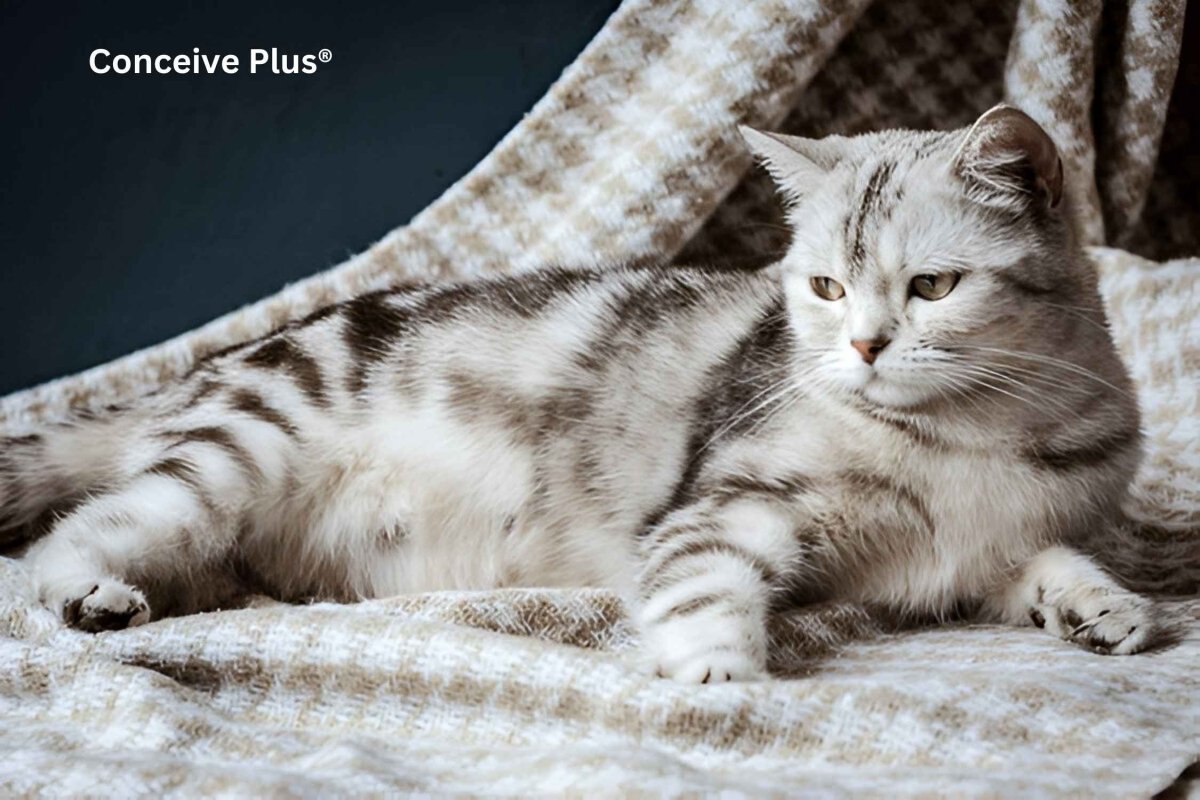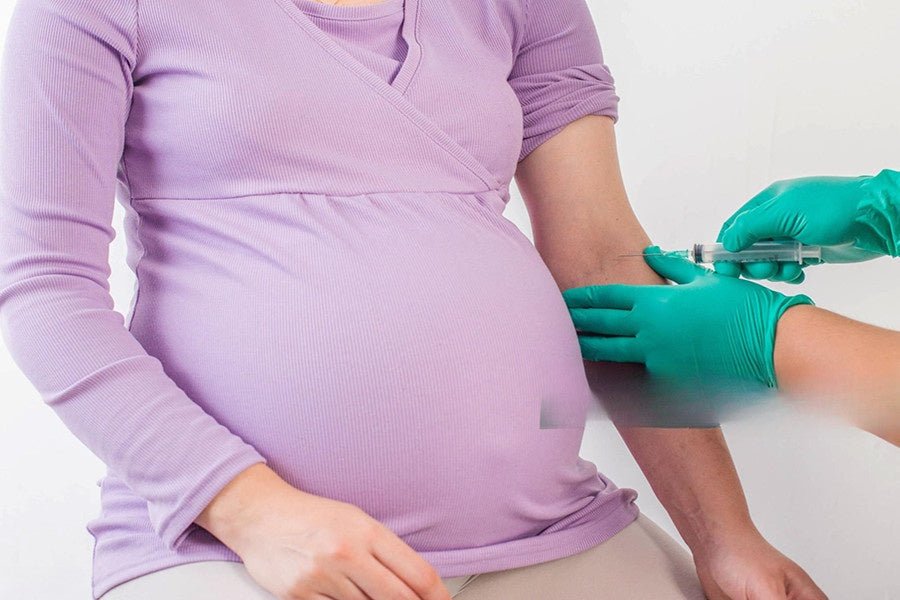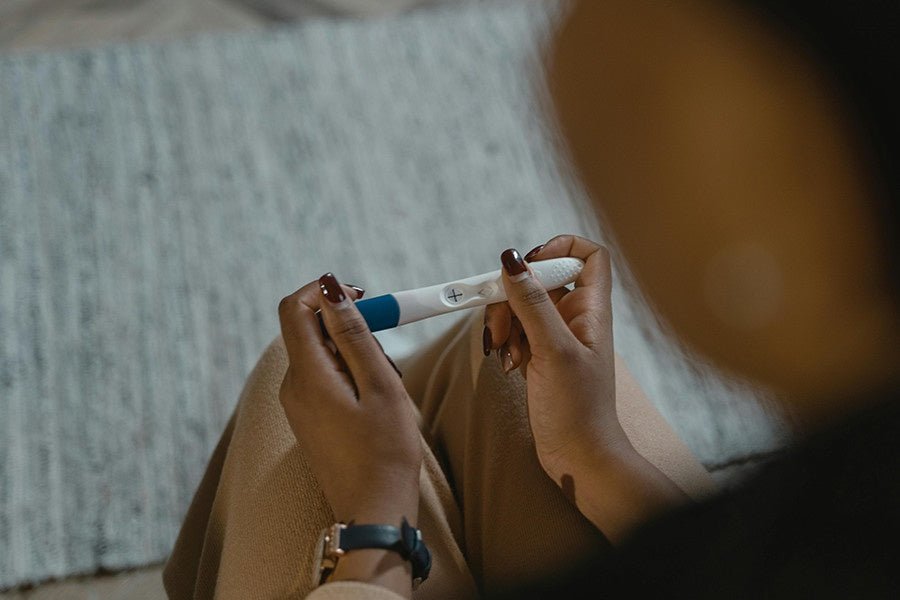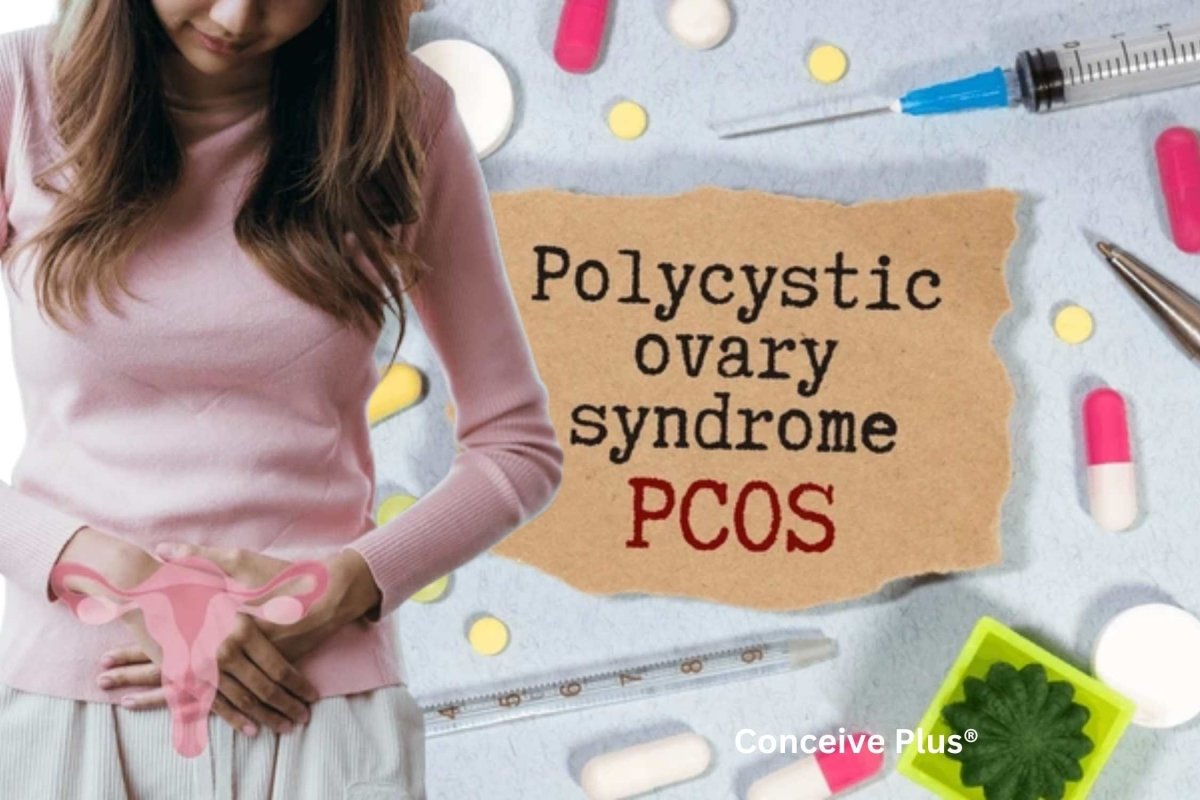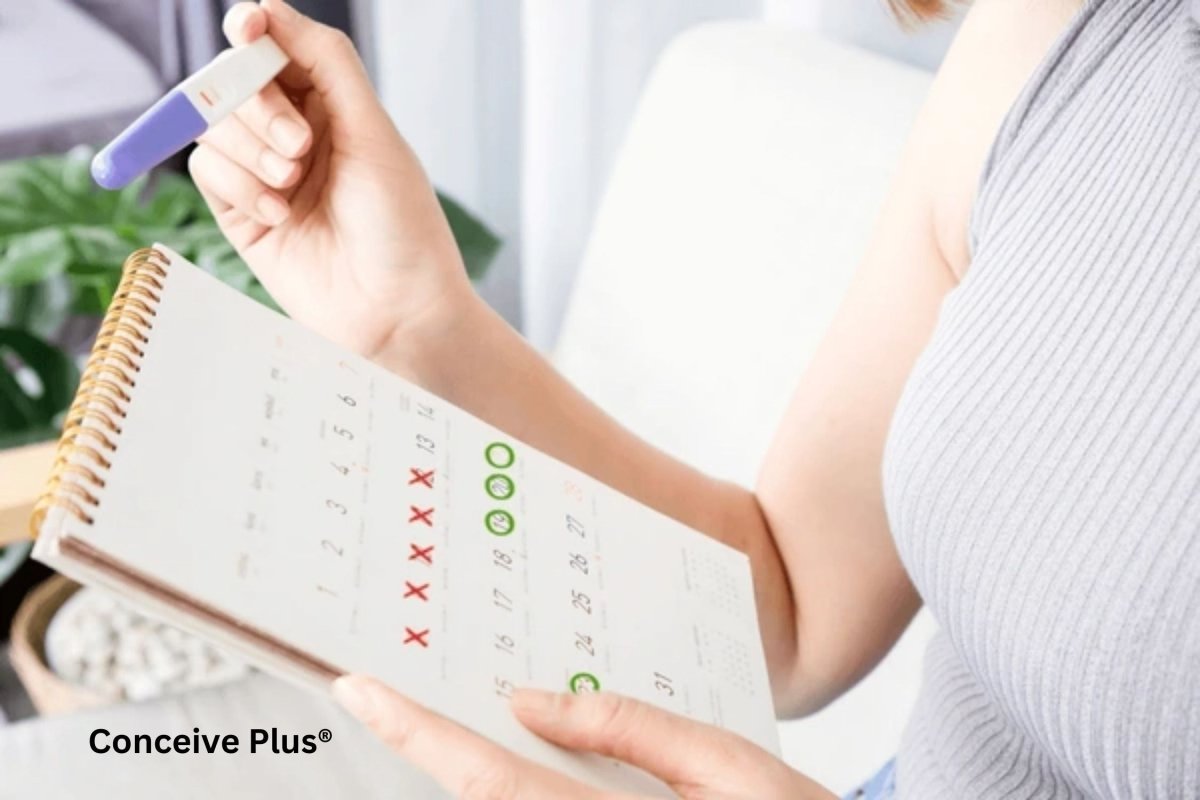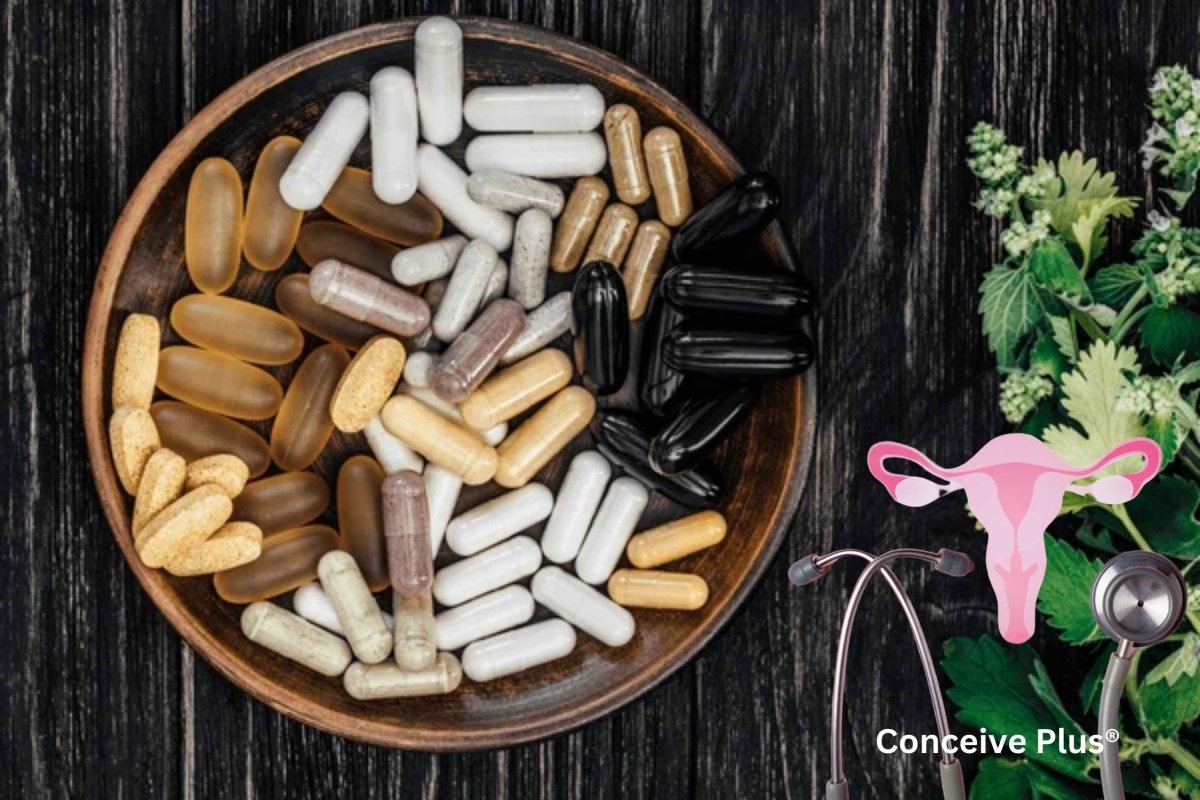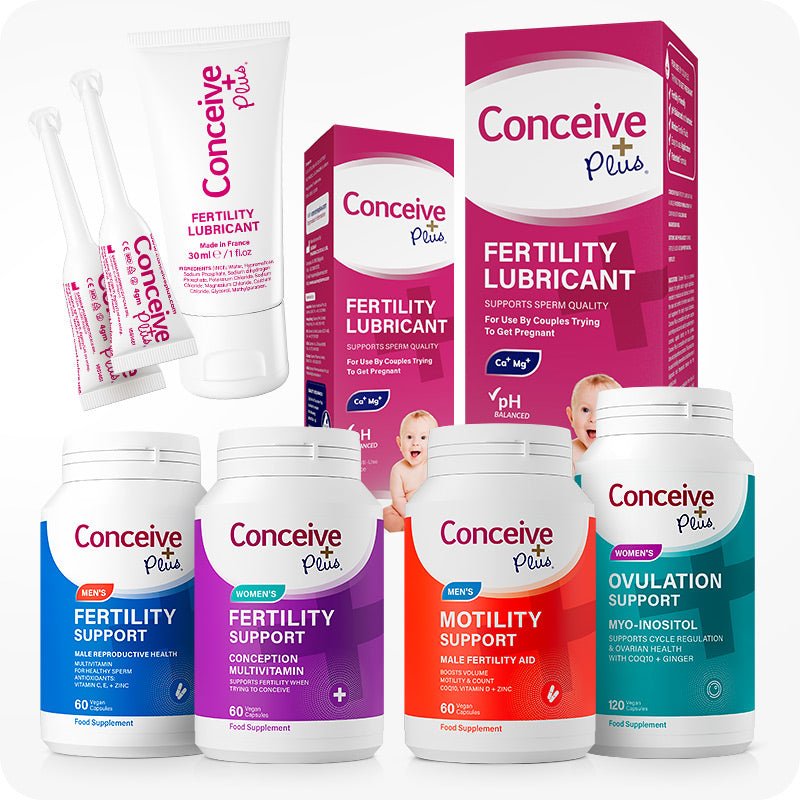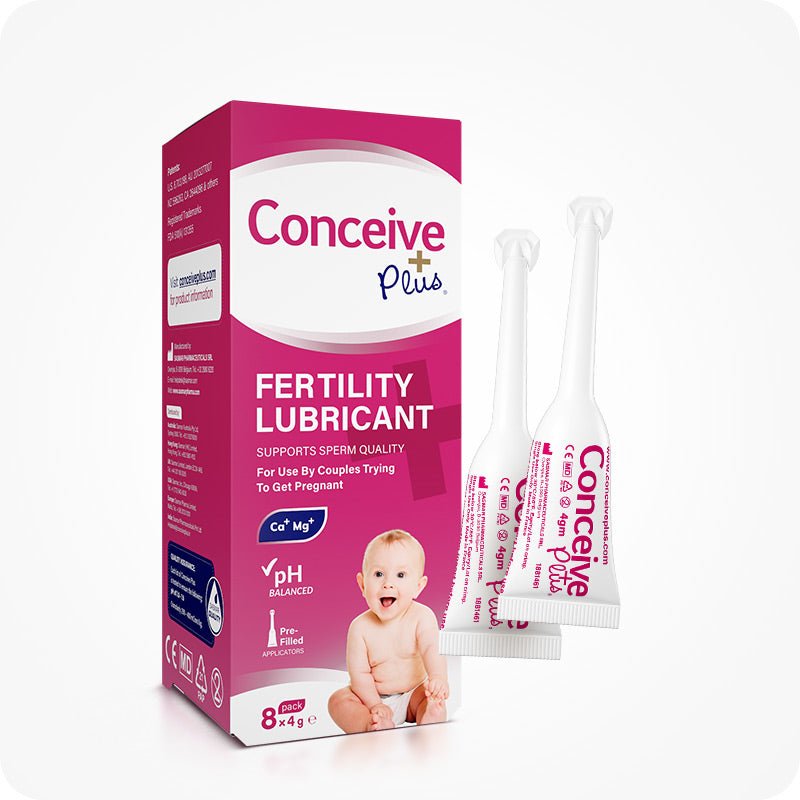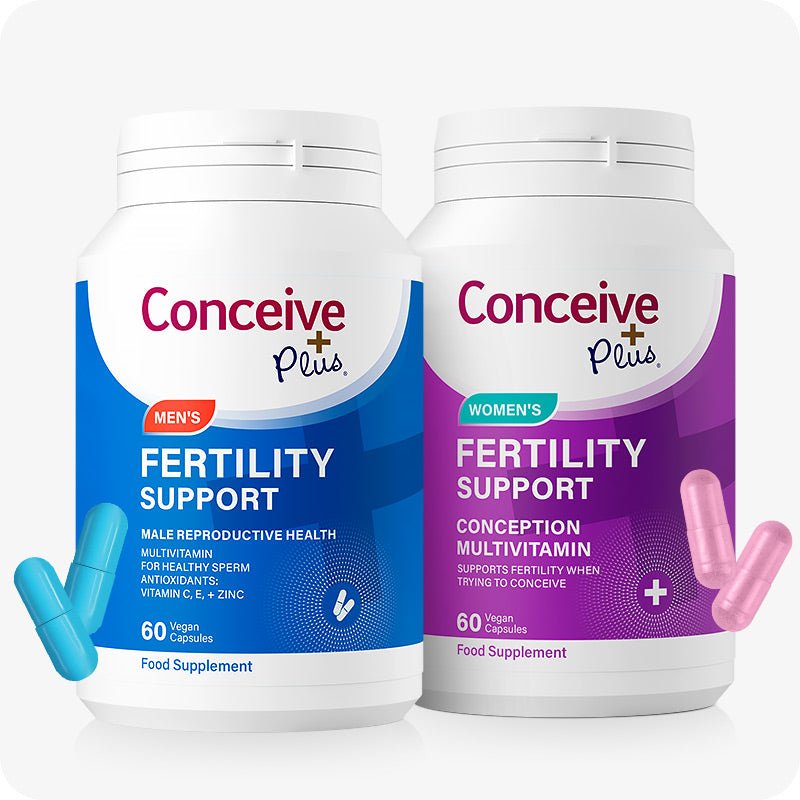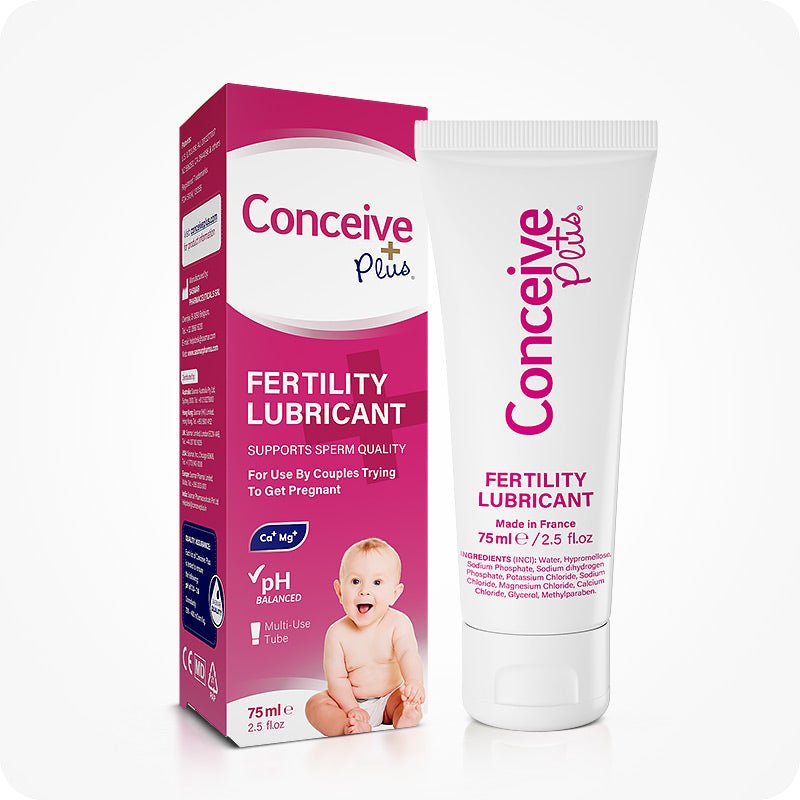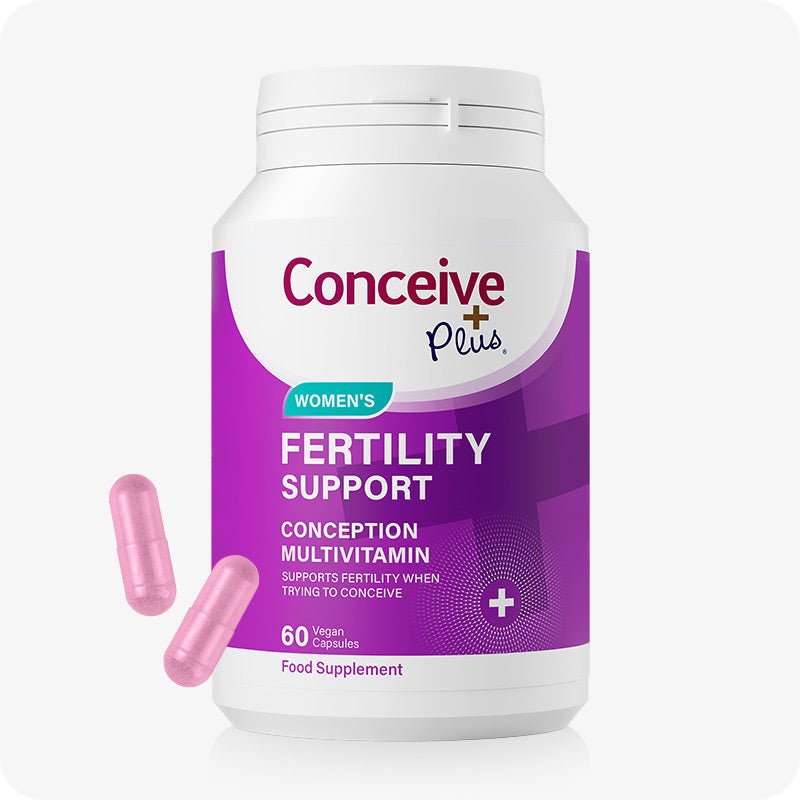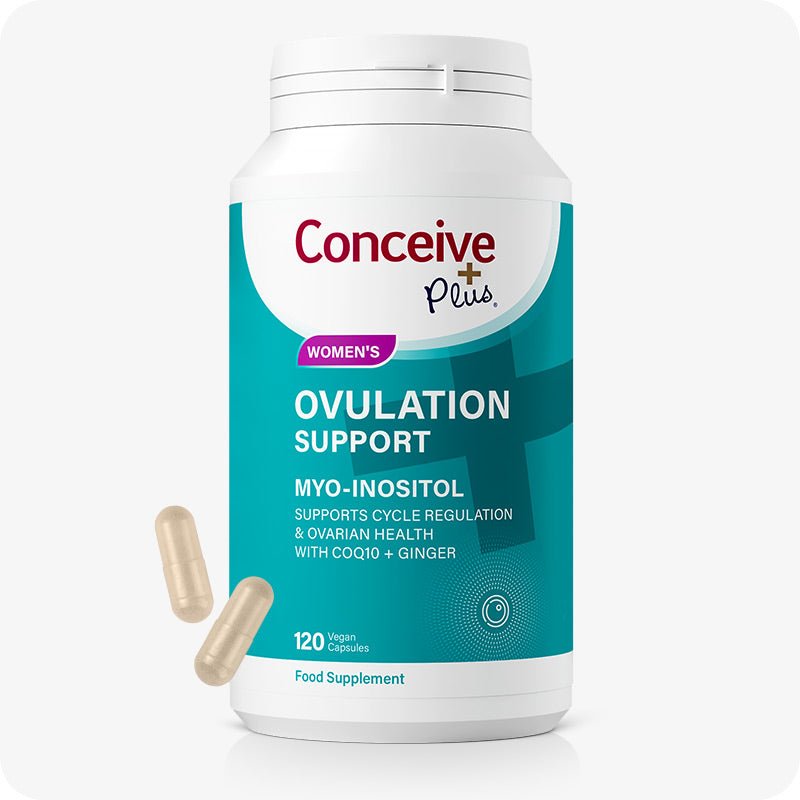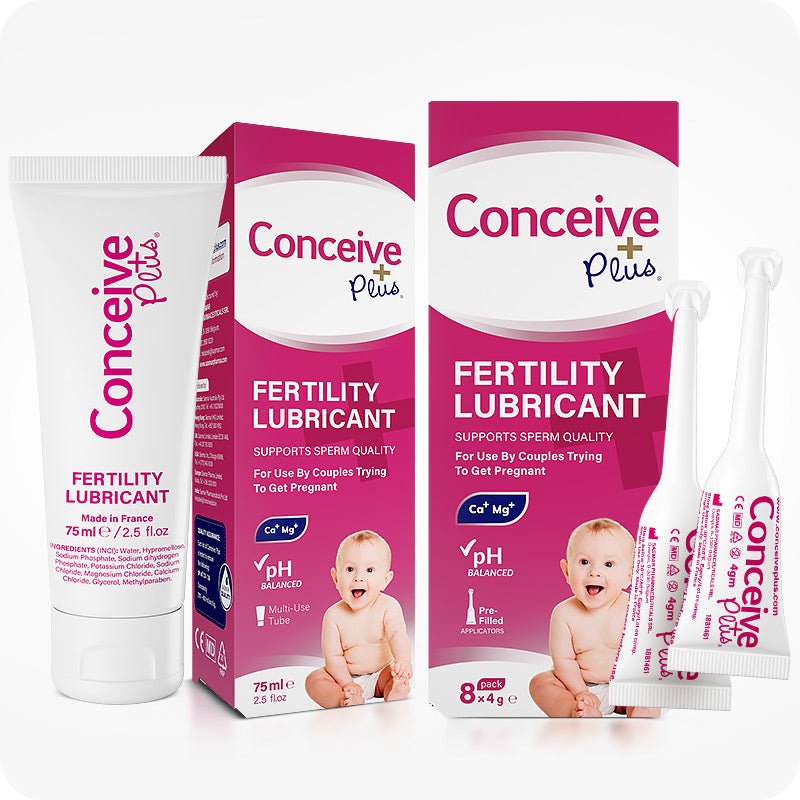How Many Days After Your Period Do You Ovulate?
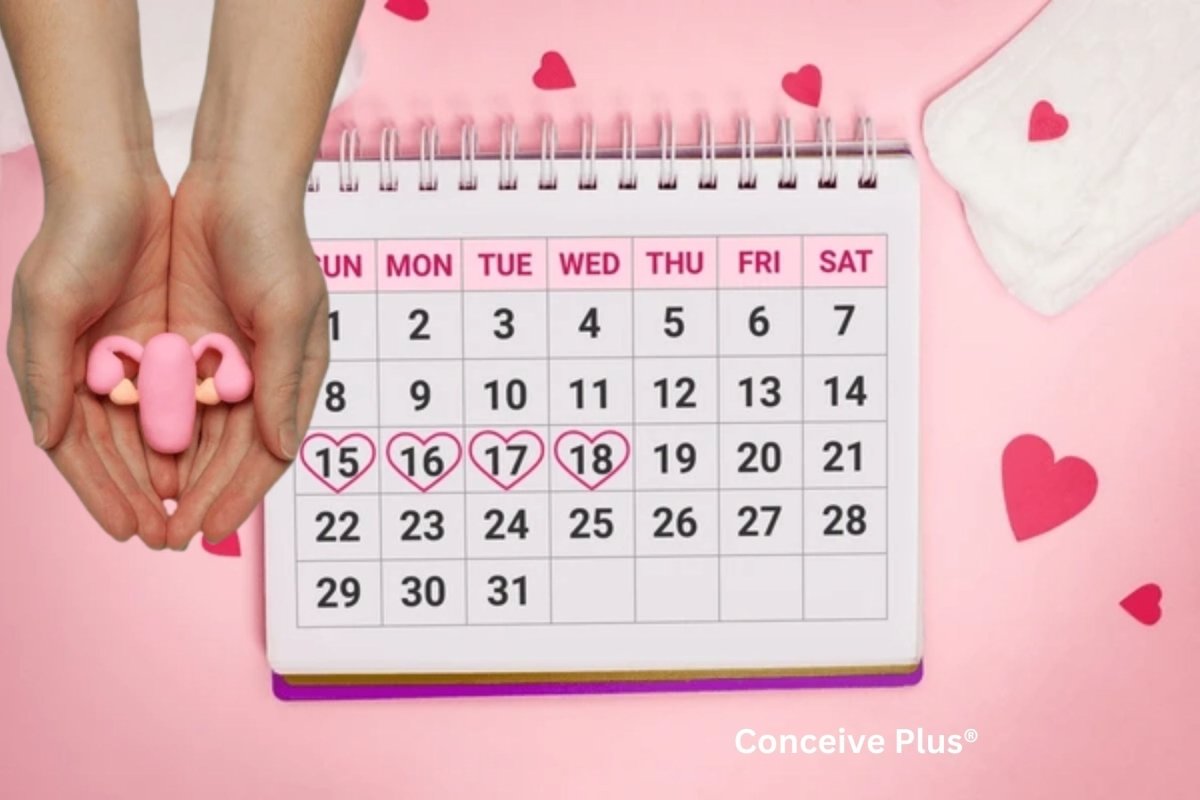
Timing is everything when it comes to ovulation and conceiving. Understanding ovulation and the signs of ovulation can help women better identify their fertile window. Being aware of when ovulation occurs in your menstrual cycle, including how many days after your period do you ovulate, and how ovulating impacts your chances of conceiving is helpful information when trying to get pregnant.
When it comes to ovulation you might wonder how many days after your period is ovulation, if you can get pregnant after ovulation, or if you should consider using an ovulation calendar.
Read on to find out the most frequently asked questions about ovulating, the most common signs of ovulation, and how you can track ovulation to conceive.
What is Ovulation?
Ovulation occurs when a mature egg is released from an ovary and is ready for fertilisation. It typically happens mid-way through the menstrual cycle, approximately 14 days before your next period, but the timing can vary for each woman, depending on the regularity of their menstrual cycle.
Understanding when ovulation occurs is beneficial in identifying a woman’s fertile window when trying to conceive. And recognising ovulation symptoms each month can provide valuable insights into when ovulation is happening or about to occur. If you ever wonder 'when is ovulation' or 'when does ovulation occur,' it’s key to grasp the ovulate meaning and ovulating meaning—that is, what does it mean ovulation, so knowing when ovulate or even when i ovulation can clarify your fertility journey.
Calculator for ovulation or ovulation tests can also be used to pinpoint exactly when do you ovulate to increase your chances of getting pregnant. However, to comprehend how many days after your period do you ovulate, it helps to know the basics of the menstrual cycle.
Ovulating and The Menstrual Cycle
A regular menstrual cycle lasts approximately 28 days. Some women are known to have an irregular cycle, which doesn’t necessarily mean anything is ‘wrong’, it just means their menstrual cycle can last from 21 to 35 days instead of 28 days [1].
Knowing the pattern of your menstrual cycle will help you to understand the phases of ovulation cycle and when you are most fertile to conceive.
The menstrual cycle is divided into several phases:
- Menstrual Phase - when you have your period. It lasts from the first day of bleeding until approximately day 5 of your cycle.
- Follicular Phase - starts on the first day of your period and continues until ovulation. This phase is when ovarian follicles grow and mature in preparation for ovulation.
- Ovulation Phase - occurs approximately midway through your cycle and is when the mature egg is released.
- Luteal Phase - after ovulating, the uterine lining begins to prepare for the potential implantation of a fertilised egg. This phase lasts until your next period begins.
When Does Ovulation Happen?
For women with a regular 28-day menstrual cycle, ovulation typically happens halfway through the cycle on approximately day 14. Whereas, women with an irregular menstrual cycle may find themselves ovulating sooner or later than day 14 due to irregular hormone fluctuations.
Once released from the ovary, a mature egg will only live for 12-24 hours. Therefore, what’s important when trying to conceive is knowing when you ovulate.
Because having intercourse during your fertile window can significantly enhance your chances of getting pregnant.
To determine when will ovulation occur many women hoping to get pregnant track their ovulation symptoms or use a calculator for ovulation. By using a reliable ovulation+calculator alongside tracking ovulation+symptoms, you can master the calculation of ovulation within your ovulation and cycle, learn how long ovulation last, determine if my period lasts 3 days when do i ovulate, and explore the links between menstruation ovulation, ovulation cycle hormones, and your ovulation period cycle—truly, ovulation ovulation is a comprehensive process.
The Signs and Symptoms of Ovulation
Although subtle, the symptoms of ovulation [2] occur each month and can help women to identify the best time for conception. Common signs of ovulation include:
Changes to the Cervical Mucus
Cervical mucus is the vaginal discharge women sometimes recognise in their underwear or when wiping after using the toilet. Just before women ovulate, the cervical mucus becomes wetter, clearer, and more slippery, similar to raw egg whites.
Slight Rise in Basal Body Temperature
The basal body temperature [3], which is the temperature at which the body is most rested, typically rises slightly when women ovulate. Therefore, the basal body temperature method is often used to predict when will ovulation occur.
Tender Breasts and Abdominal Cramping
As an egg is released by the ovary some women can feel lower abdominal pressure or pain on one side (depending on which ovary is releasing an egg). Breast tenderness or pain is also common during ovulation and is believed to be caused by hormone fluctuations.
Other common signs when ovulating [2] include:
- Increased libido
- Mood swings
- Food cravings
- Spotting (light bleeding)
Monitoring these signs of ovulation can make it easier for women to be aware of their fertile window and enhance their chances of making a baby.
If you're curious about why some women experience light spotting during their cycle, check out our article on ovulation and blood for more detailed insights.
How Long Does Ovulation Last?
Even though the menstrual cycle typically lasts 28 days, ovulation is a brief event within this cycle. Once an egg is released from the ovary, it’s only viable for fertilisation for about 12-24 hours.
However, although the lifespan of a mature egg is relatively short, sperm can survive in the female reproductive tract for up to 3-5 days. This means a woman can still conceive if a couple has sex 3-4 days before ovulation occurs.
Therefore, recognising the symptoms of ovulation and knowing how long do you ovulate for can optimise your probability of getting pregnant.
What is a Calculator of Ovulation?
A calculator of ovulation is used to estimate your fertile window. The calculation relates to menstruation and ovulation, whereby 14 days are subtracted from the overall length of your menstrual cycle.
The length of your menstrual cycle is counted from the first day of your last period until the first day of the next. Tracking ovulation signs and symptoms, such as changes in the cervical mucus or basal body temperature can help predict the timing of your ovulation and period.
Understanding the phases of the ovulation cycle—which includes the follicular phase, ovulation, and luteal phase—can further aid in identifying your fertile days.
How Do You Do the Calculation for Ovulation?
To calculate ovulation, subtract 14 days from the length of your menstrual cycle. (The menstrual cycle is counted from the first day of one period to the first day of the next). For example, if your cycle is 28 days long, ovulation is likely around day 14 or from days 12-16.
What is an Ovulation Date Calculator?
An ovulation date calculator is a tool or software that estimates your fertile window and ovulation date based on your menstrual cycle information. Many fertility websites offer a free ovulation calculator. Fertility monitors, ovulation apps, and ovulation tests are also used to track or predict ovulation.
That said, you can also use ovulation symptoms as an ovulation date calculator. For example, measuring your basal body temperature to identify the slight rise around ovulation or watching for the changes in cervical mucus and breast tenderness [5].
Using Ovulation Trackers When Trying to Conceive?
Life is busy sometimes. And it often happens that women tracking the signs and symptoms of ovulation miss the subtle changes that indicate they are fertile. It’s also common for women to get confused about ovulation.
Instead of leaving things to chance, trying to calculate each month when do you ovulate, or silently wondering when will ovulation occur, you can use ovulation trackers [4].
Incorporating an ovulation calculator, fertility monitor, or ovulation test into your baby-making journey can not only answer your questions about ovulation, they can also ensure that you have intercourse during peak fertility.
If you've ever wondered 'will ovulation test be positive if pregnant', be sure to read our article 'Will Ovulation Test Be Positive If Pregnant? Understanding The Journey Of Pregnancy' for a deeper look into early pregnancy detection.
FAQs
Define Ovulation
Ovulation is the release of a mature egg from the ovary into the fallopian tube, where it can be fertilised by sperm. This event occurs approximately halfway through the menstrual cycle.
Can You Get Pregnant After Ovulation?
Yes. Pregnancy is possible after ovulation if you have intercourse during the fertile window, which includes the 3-4 days leading up to ovulation and the day of ovulation. Although sperm can live for 3-5 days in the female reproductive tract, the chances of conception decrease significantly once ovulation has passed, as the egg only lives for 12-24 hours.
What Are the Chances of Getting Pregnant on Ovulation Day?
The chances of getting pregnant on the day you ovulate are quite high. Ovulation is when the egg is released from the ovary and is available for fertilisation. Therefore, having intercourse on this day offers the best opportunity for sperm to meet the egg.
Ovulation is what?
Ovulation is the process where an ovary releases a mature egg, making it available for fertilisation by sperm.
How many days after period is ovulation?
Ovulation typically occurs about 14 days before the start of your next period. This is roughly in the middle of your cycle if you have a regular 28-day cycle.
What does ovulation mean?
Ovulation meaning refers to the release of an egg from an ovary, which is a key part of the menstrual cycle and is crucial for conception.
Ovulation meaning?
Ovulation is the process in which a mature egg is released from the ovary and is available to be fertilized by sperm.
Is there an ovulation cycle?
Yes, ovulation is part of the menstrual cycle. It usually occurs around the middle of the cycle, about 14 days before your next period starts.
What are ovulation days?
Ovulation days are the days when the mature egg is released from the ovary and is available for fertilization, typically occurring about 14 days before the start of your next menstrual period.
Your Period is How Many Days After Ovulation?
Generally, ovulation occurs 12-16 days after ovulation. However, pinpointing how many days after your period ovulation is likely to occur, will depend on the length of your cycle.
When can you ovulate?
You ovulate approximately halfway through your menstrual cycle, about 12-16 days before the start of your next period. The exact timing can vary depending on the length and regularity of your cycle.
When will you ovulate?
The timing of ovulation can be estimated by noticing ovulation symptoms or by using an ovulation calculator. Typically, ovulation happens 14 days before your next period starts, but this can differ based on your cycle length.
How long after period do you ovulate?
Typically, ovulation occurs around 12 to 16 days after the start of your period, depending on the length of your menstrual cycle. For a standard 28-day cycle, ovulation usually happens around day 14.
How many days after menstruation is ovulation period?
The ovulation period generally starts around 12 to 16 days after the beginning of menstruation, but this can vary depending on the length of your cycle.
When am I ovulating?
Ovulation usually occurs approximately halfway through your cycle. Tracking your cycle with an ovulation calendar or using an ovulation calculator can help determine the exact timing.
How many days does ovulation last?
Ovulation itself lasts for about 12 to 24 hours, during which the egg is available for fertilisation. However, the fertile window includes the 3-4 days leading up to ovulation and the day of ovulation.
How many days after ovulation is period?
The period typically starts about 12 to 16 days after ovulation. This is known as the luteal phase of the menstrual cycle.
If my period lasts 3 days, when do I ovulate?
If your period lasts 3 days and you have a standard 28-day cycle, you are likely to ovulate around day 14. However, the exact timing can vary, and using an ovulation estimator can provide a more accurate prediction.
What does ovulating mean?
Ovulating refers to the process of releasing a mature egg from the ovary, which then travels down the fallopian tube where it can be fertilised.
When do women ovulate?
Most women ovulate around the midpoint of their menstrual cycle. For a typical 28-day cycle, ovulation occurs around day 14. However, this can vary based on individual cycle lengths.
When do females ovulate?
Females typically ovulate around the midpoint of their menstrual cycle, which is usually about 14 days before the next period begins. This timing can vary depending on the length of the menstrual cycle.
When does ovulation take place?
Ovulation takes place approximately midway through the menstrual cycle. For a regular 28-day cycle, this is around day 14, but it can differ based on individual cycle lengths.
How do you calculate ovulation date?
To calculate your ovulation date, subtract 14 days from the expected start of your next period. For more accuracy, use an ovulation calculator or track your cycle with an ovulation calendar.
How long after ovulation is period?
The period typically starts about 12 to 16 days after ovulation, during the luteal phase of your cycle.
How long after ovulation pain is the egg released?
Ovulation pain, or mittelschmerz, usually occurs around the time of ovulation. The egg is typically released within hours of the pain.
When does ovulation come?
Ovulation typically occurs around the middle of your menstrual cycle, about 14 days before your next period.
How many days after ovulation can you get pregnant?
You can get pregnant if intercourse occurs in the days leading up to or on the day of ovulation, as sperm can live for up to five days in the reproductive tract. However, the egg is viable for fertilization for only about 12 to 24 hours.
In what organ does ovulation take place?
Ovulation takes place in the ovaries, where a mature egg is released from an ovarian follicle into the fallopian tube.
Can someone get pregnant after ovulation?
Pregnancy is unlikely after ovulation has concluded, as the egg is viable for fertilization for only about 12 to 24 hours. However, sperm can survive for up to five days, so intercourse just before ovulation can still result in pregnancy.
Can you only get pregnant during ovulation?
Pregnancy is most likely to occur during ovulation, but since sperm can survive for several days in the reproductive tract, you can conceive from intercourse that happens a few days before ovulation.
Can you ovulate without a period?
Yes, it is possible to ovulate without having regular periods, especially in cases of hormonal imbalances or conditions like polycystic ovary syndrome (PCOS).
Do you get pregnant after ovulation?
Pregnancy generally requires intercourse to occur during the ovulation period. While the chances decrease after ovulation, having sex in the days leading up to ovulation can still result in pregnancy if sperm are present when the egg is released.
How long after ovulation can you get pregnant?
Pregnancy can occur if intercourse happens up to five days before ovulation and on the day of ovulation, as sperm can fertilize the egg within its 12 to 24-hour viability period.
When will I ovulate?
You will ovulate roughly 14 days before your next period starts. For a regular 28-day cycle, this is about day 14.
How long after your period do you ovulate?
Typically, ovulation occurs about 12 to 16 days after the start of your period. This timing can vary based on the length of your menstrual cycle.
How long does an egg last after ovulation?
An egg remains viable for fertilization for about 12 to 24 hours after ovulation.
How long does an egg survive after ovulation?
The egg survives for roughly 12 to 24 hours after ovulation. If it is not fertilized within this time frame, it will be reabsorbed or expelled from the body.
How long is ovulation?
The actual release of the egg during ovulation lasts for a short period, approximately 12 to 24 hours, but the fertile window extends several days before and including the day of ovulation.
How many days is ovulation after period?
For a typical 28-day cycle, ovulation occurs around 14 days after the start of your period. This timing can vary depending on the length and regularity of your cycle.
What does it mean by ovulation?
Ovulation refers to the release of a mature egg from the ovary into the fallopian tube, where it can potentially be fertilized by sperm.
What happens during ovulation?
During ovulation, a mature egg is released from the ovary and enters the fallopian tube. This process is triggered by hormonal changes and is the optimal time for fertilization to occur.
When do you ovulate after period?
Typically, ovulation occurs about 12 to 16 days after the start of your period. This timing can vary based on your cycle length and regularity.
When do you ovulate after your period?
For a standard 28-day cycle, ovulation usually occurs around 14 days after the start of your period. However, this can vary depending on the length and regularity of your cycle.
When does a woman ovulate?
A woman typically ovulates around the midpoint of her menstrual cycle, approximately 14 days before the start of her next period, though this timing can vary based on cycle length.
When do I ovulate?
Ovulation usually occurs around the midpoint of your menstrual cycle. To determine the exact timing, use an ovulation calculator or track ovulation symptoms.
Can you get pregnant before ovulation?
Yes, it is possible to get pregnant from intercourse that occurs a few days before ovulation because sperm can survive in the reproductive tract for up to five days.
Can you ovulate on your period?
Ovulation does not occur during menstruation. However, in very short cycles, ovulation can happen soon after the period ends.
How long after period is ovulation?
Ovulation typically occurs about 14 days before the start of your next period. If you have a regular 28-day cycle, this would be around day 14, which is roughly two weeks after the start of your period.
How many days after period do you ovulate?
Ovulation usually happens about 14 days before your next period begins. So, if you have a regular cycle of 28 days, ovulation would generally occur around 14 days after your period starts.
How many days after your period do you ovulate?
For a typical 28-day cycle, ovulation occurs about 14 days after the start of your period. This can vary depending on the length of your cycle.
How many days after the period is ovulation?
In a standard 28-day cycle, ovulation is approximately 14 days after the first day of your period.
What is ovulating?
Ovulating refers to the release of a mature egg from an ovary, which then travels down the fallopian tube where it can be fertilized by sperm.
What does it mean: ovulation?
Ovulation is the process in the menstrual cycle where a mature egg is released from the ovary, making it available for fertilization.
When ovulating, what is usually the first sign?
The first sign of ovulation can include changes in cervical mucus (it becomes clearer and more slippery), a slight rise in basal body temperature, or mild abdominal cramping.
When does a lady ovulate?
Ovulation typically occurs around the middle of the menstrual cycle, about 14 days before the start of the next period, but this can vary depending on cycle length.
When do ovulation symptoms typically occur?
Ovulation symptoms usually occur about 1-2 days before and during ovulation. Symptoms may include changes in cervical mucus, a slight increase in basal body temperature, and sometimes mild pelvic pain.
When did I ovulate?
To determine when you ovulated, you can track symptoms, use an ovulation predictor kit, or calculate based on your cycle length. Ovulation typically occurs about 14 days before your next period.
When can a woman ovulate?
A woman can ovulate any time during her menstrual cycle, but it usually happens around the middle of the cycle. For most, this is about 14 days before the next period starts, but it can vary depending on individual cycle length and regularity.
References
- NHS - What Happens During the Menstrual Cycle - https://www.nhs.uk/conditions/periods/fertility-in-the-menstrual-cycle/
- WebMD - Am I ovulating? - https://www.webmd.com/baby/am-i-ovulating
- Cleveland Clinic - Basal Body Temperature - https://my.clevelandclinic.org/health/articles/21065-basal-body-temperature
- Healthline - The Best Fertility Monitors According to A Nurse - https://www.healthline.com/health/fertility/fertility-monitor#
- Johns Hopkins Medicine - https://www.hopkinsmedicine.org/health/wellness-and-prevention/calculating-your-monthly-fertility-window




